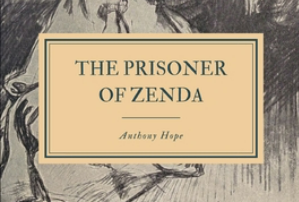Chapter 1 — The Rassendylls—With a Word on the Elphbergs
byChapter 1 – The Rassendylls—With a Word on the Elphbergs introduces Rudolf Rassendyll as a man content with his leisurely lifestyle, unconcerned by the societal pressure to accomplish something deemed significant. Over breakfast, he is gently teased by Rose, his sister-in-law, who finds his life of casual comfort lacking in ambition. Her criticisms, while affectionate, highlight a growing gap between how society views worth and how Rudolf chooses to live. Though he doesn’t refute her outright, his demeanor reflects quiet resistance to a path laid out by others. This exchange, however light-hearted, underscores a deeper theme: the tension between expectation and personal will. In many ways, Rudolf symbolizes the idle aristocrat—well-educated, well-traveled, but seemingly disinterested in conventional success.
What makes Rudolf unique is his unusual heritage, marked by a bold red hair and aquiline nose—traits famously associated with the Elphbergs, the ruling family of Ruritania. Though often the subject of family jokes, these features connect him to a royal bloodline that history hasn’t quite forgotten. Rose, who cares deeply for Rudolf, hopes to redirect his life by suggesting a diplomatic post. Though reluctant, he agrees to consider it within six months, more to please her than from any real desire. In truth, the idea of responsibility holds little charm for him. Instead, he decides on a spontaneous journey—one that is carefully disguised as a walking tour in Tyrol but is in fact bound for Ruritania. The allure lies not just in the coronation of King Rudolf V, but in exploring a legacy he has always half-denied.
The mention of a past family scandal adds a note of mystery to Rudolf’s lineage, implying a deliberate distancing from Ruritania by his ancestors. His decision to go, therefore, carries more than mere curiosity—it signals a subtle rebellion against family tradition and an unspoken desire to confront history. Rassendyll isn’t merely a spectator of noble drama; his bloodline, though unofficial, places him on the fringe of a royal narrative. This identity, half-embraced and half-denied, sets the tone for everything that follows. While others see leisure, his actions suggest something else entirely: the beginning of a man’s search for meaning in a world where he has always been an outsider. His journey will not only take him across borders, but into the depths of what it means to truly belong.
Rudolf’s understated personality is crucial to understanding why he becomes the perfect candidate for what lies ahead. He carries himself with a blend of irony and confidence, never boastful, yet never unaware of his privilege. His charm doesn’t come from ambition, but from a quiet intelligence and a wit that often masks deeper thoughts. As readers, we’re drawn in by this contradiction—he seems detached, yet he’s about to be thrust into one of the most critical roles of his life. The chapter cleverly doesn’t rush into drama but allows subtle clues to build intrigue. There’s a sense of stillness before the storm, as Rudolf, armed with lineage and curiosity, walks toward a fate he couldn’t yet imagine.
From an SEO perspective, this chapter functions as the narrative’s origin point, where the protagonist’s comfort is disrupted by the promise of adventure. It blends themes of heritage, self-discovery, and reluctant nobility, creating a compelling setup that resonates with readers interested in historical fiction, royal intrigue, and personal transformation. For modern audiences, Rudolf’s internal conflict mirrors a timeless dilemma: how much of our identity is shaped by blood, and how much by choice? His resemblance to the Elphbergs, once just an amusing anecdote, is about to become the catalyst for a nation’s political crisis. In real-world terms, this reflects how even ordinary lives can intersect with larger historical forces, especially when personal identity overlaps with public significance.
This chapter also opens a conversation about privilege and responsibility. Rudolf lives a life of ease because of inherited wealth and status, yet he’s never been asked to do anything significant. His upcoming journey to Ruritania shifts that balance, turning passive privilege into active obligation. This transformation is gradual and begins not with dramatic decisions, but with small choices—accepting a suggestion, buying a train ticket, altering a route. The casual way these steps unfold reflects real human behavior: most life-altering events are not grand gestures but incremental shifts. It’s this realism that grounds the story, despite its royal settings and romanticized premise.
For readers and writers alike, Rudolf’s introduction serves as a masterclass in character development. He is flawed yet likable, privileged yet humble, and disengaged yet perceptive. These traits make his later heroism all the more believable because it grows organically from who he is—not from who he pretends to be. As such, the chapter sets a solid foundation for the themes of duality, identity, and honor that echo throughout the rest of The Prisoner of Zenda. It’s not just the resemblance to the King that matters—it’s what Rudolf chooses to do with it. And as readers will discover, that choice will shape not only his life but the fate of an entire kingdom.


